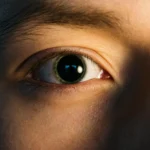When mental health challenges and addiction overlap, it can be challenging to know when a dual diagnosis professional addiction treatment is needed. Often, people may not recognize the signs that indicate a deeper issue requiring specialized support. Here’s a guide to identifying signs and symptoms that you may need mental health and addiction treatment, which could be beneficial, helping you or your loved ones make an informed decision toward recovery.
Understanding Dual Diagnosis Treatment
Dual diagnosis treatment addresses both substance use disorder (SUD) and co-occurring mental health disorders like anxiety, depression, or PTSD. Treating these conditions together is crucial because unresolved mental health symptoms can contribute to substance use, and addiction can worsen or mask mental health issues.
Key Signs You May Need Mental Health and Addiction Treatment
If you’re experiencing any combination of the following symptoms, dual diagnosis treatment may be the most effective path forward:
Using Substances to Cope with Emotional Pain
People with mental health struggles sometimes turn to drugs or alcohol to manage difficult emotions or symptoms. If you notice signs of substance use to self-medicate—whether to relieve anxiety, calm depression, or escape traumatic memories—it could be a sign that both mental health and addiction issues need professional treatment.
Persistent Feelings of Anxiety, Depression, or Emotional Distress
Long-lasting feelings of sadness, worry, or emotional numbness often signal an underlying mental health disorder. When these feelings persist, despite attempts to manage them, or if they worsen with substance use, dual diagnosis treatment can help address the root causes in a supportive, structured environment.
Inability to Quit Substance Use Despite Efforts
Many individuals with co-occurring disorders struggle to stop using substances even when they recognize the negative impact. If attempts to quit result in mood swings, heightened mental health symptoms, or physical withdrawal, this indicates a dependency that requires medical and therapeutic support.
Intensified Mental Health Symptoms During Substance Withdrawal
Withdrawal from substances like alcohol or drugs can amplify mental health symptoms such as anxiety, depression, or even hallucinations. This cycle can make recovery challenging and painful, as the body and mind react intensely to the absence of substances. Dual diagnosis treatment provides a safe environment with medical support to ease withdrawal symptoms and manage mental health effectively.
Extreme Mood Swings or Unpredictable Behavior
Intense mood swings or episodes of irritability, anger, or paranoia can signify both substance use issues and mental health conditions. If these shifts are frequent and severe, they may point to co-occurring disorders like bipolar disorder or borderline personality disorder combined with substance use, which benefit from specialized dual diagnosis treatment.
Strained Relationships and Social Withdrawal
When mental health and addiction overlap, it often affects personal relationships. Individuals may start withdrawing from loved ones, neglecting friendships, or experiencing conflict more frequently. If substance use and emotional struggles are interfering with relationships, it’s a sign that comprehensive support is needed to rebuild healthy connections and communication.
Difficulty Functioning in Daily Life
If maintaining work, school, or home responsibilities becomes difficult due to substance use or overwhelming mental health symptoms, dual diagnosis treatment could provide the needed support to regain control. Many with co-occurring disorders experience a decline in productivity, motivation, and concentration, making daily tasks feel unmanageable.
Engaging in Risky or Self-Destructive Behaviors
People dealing with addiction and mental health issues may engage in high-risk behaviors, such as reckless driving, unsafe sex, or self-harm. These behaviors are often ways of coping with intense mental health symptoms or the effects of substance use. Treatment for both conditions can help replace these behaviors with healthier coping mechanisms.
Experiencing Traumatic Flashbacks or Severe Panic Attacks
Individuals with unresolved trauma or PTSD may use substances to numb flashbacks or panic attacks. However, this often leads to dependency and worsens mental health in the long run. Dual diagnosis treatment is specifically designed to address trauma and its connection to addiction, providing tools for healthy coping and healing.
Feeling Trapped in a Cycle of Relapse
If you’ve attempted recovery from substance use before but relapsed due to mental health symptoms, this may indicate the need for dual diagnosis treatment. Many people find that treating both mental health and addiction together offers a more sustainable path, as it addresses the underlying factors contributing to relapse.
Why Dual Diagnosis Treatment Can Make a Difference
Dual diagnosis treatment integrates support for both mental health and addiction in one comprehensive program. Addressing both aspects simultaneously creates a strong foundation for long-term recovery. With therapies like cognitive-behavioral therapy (CBT), dialectical behavior therapy (DBT), trauma-informed care, and medical support, dual diagnosis treatment provides personalized strategies for managing mental health symptoms without the use of substances.
Taking the Next Step Toward Healing
If you or someone you know is struggling with these symptoms, consider contacting a treatment provider specializing in dual diagnosis care. Addiction treatment facilities like California Recovery Center (CRC) offer evidence-based programs that support both mental health and addiction recovery, helping individuals reclaim their lives in a safe, compassionate environment.
Recognizing the signs that you may need dual diagnosis treatment is a powerful first step. With the right support, recovery and renewed well-being are within reach.




